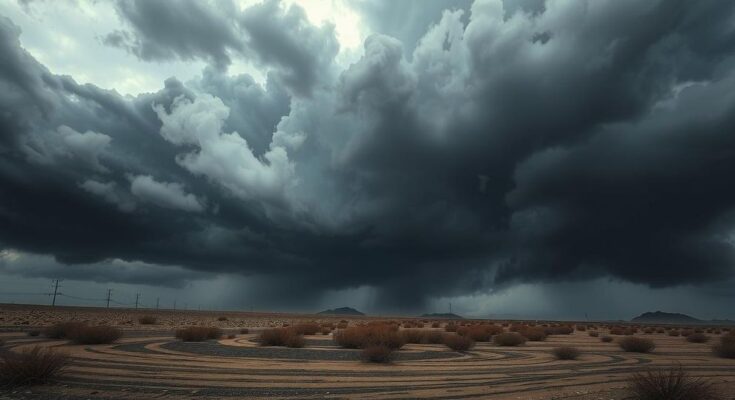Iran’s Revolutionary Guard has threatened retaliation against US airstrikes targeting Houthis in Yemen. Salami emphasized Houthi autonomy in military decisions, while Trump cautioned Iran against continued support for the Houthis. The airstrikes resulted in significant civilian casualties and have been condemned by Iranian officials. The backdrop is the ongoing Israeli-Gaza conflict, which has intensified Houthi military actions in solidarity with Palestinians.
On Sunday, Iran’s Revolutionary Guard Commander Hossein Salami issued a warning of potential retaliation against any attacks following US airstrikes on Houthi positions in Yemen. Salami emphasized that the Houthis are autonomous in their decisions regarding strategy and operations. His remarks followed US President Donald Trump’s threats aimed at the Houthis, urging them to cease their attacks or face severe consequences.
President Trump had declared to the Houthis that they would experience unprecedented retaliation if they continued their assaults. Additionally, he warned Iran to halt its support for the Houthis, declaring that the United States would hold Iran fully accountable for any further aggression.
Iran strongly condemned the US airstrikes as “barbaric,” asserting that they resulted in the deaths of at least 31 individuals, including women and children, according to the Houthi-run Ministry of Health. Ismail Baghery, spokesperson for the Iranian Foreign Ministry, characterized the strikes as a gross infringement upon the United Nations Charter and international law.
Iranian Foreign Minister Abbas Araghchi rebuffed Trump’s demand for Iran to terminate its backing of the Houthis, stating, “The US has no right to dictate Iran’s foreign policy.” He expressed concern over the ongoing violence against Yemeni civilians, criticizing the US’s historical interventions in Iranian affairs.
The US airstrikes on the Houthis, ordered by President Trump, mark the first such action since he assumed office in January 2025. The Houthis, who receive support from Iran, have control over significant territories in Yemen, including the capital, Sana’a.
The recent escalation followed the Israeli-Gaza conflict that erupted in October 2023, which resulted in approximately 61,709 fatalities. This conflict prompted the Houthis to intensify drone and missile attacks on maritime vessels in the Red Sea and Gulf of Aden, asserting their actions were in solidarity with the Palestinian cause. The US, UK, and Israel have previously undertaken military operations targeting Houthi positions in Yemen during the administration of former President Joe Biden.
In summary, Iran has issued stern warnings regarding potential retaliation in response to recent US airstrikes on Houthi forces in Yemen, following escalated tensions from US threats and ongoing regional conflicts. The situation reflects a complex interplay of geopolitical interests, with both Iran and the US firmly entrenched in their positions regarding the Houthis. The conflict continues to exacerbate humanitarian concerns in Yemen amidst the backdrop of broader regional turmoil.
Original Source: shafaq.com




